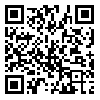Volume 13 - Vol.13, (Special Issue)
irje 2018, 13 - Vol.13, (Special Issue): 155-165 |
Back to browse issues page
Download citation:
BibTeX | RIS | EndNote | Medlars | ProCite | Reference Manager | RefWorks
Send citation to:



BibTeX | RIS | EndNote | Medlars | ProCite | Reference Manager | RefWorks
Send citation to:
Yazdi Feyzabadi V, Seyfaddini R, GHandi M, Mehrolhasani M. The World Health Organization's Definition of Health: A Short Review of Critiques and Necessity of A Shifting Paradigm. irje 2018; 13 :155-165
URL: http://irje.tums.ac.ir/article-1-5985-en.html
URL: http://irje.tums.ac.ir/article-1-5985-en.html
1- Assistant Professor, PhD in Health Policy, Health Services Management Research Center, Institute for Futures Studies in Health, Kerman University of Medical Sciences, Kerman, Iran
2- Associate Professor, Neurologist, Health Services Management Research Center, Institute for Futures Studies in Health, Kerman University of Medical Sciences, Kerman, Iran
3- MSc Student in Health Technology Assessment, Modeling in Health Research Center, Institute for Futures Studies in Health, Kerman University of Medical Sciences, Kerman, Iran
4- Associate Professor, Social Determinants of Health Research Center, Institute for Futures Studies in Health, Kerman University of Medical Sciences, Kerman, Iran ,mhmhealth@gmail.com
2- Associate Professor, Neurologist, Health Services Management Research Center, Institute for Futures Studies in Health, Kerman University of Medical Sciences, Kerman, Iran
3- MSc Student in Health Technology Assessment, Modeling in Health Research Center, Institute for Futures Studies in Health, Kerman University of Medical Sciences, Kerman, Iran
4- Associate Professor, Social Determinants of Health Research Center, Institute for Futures Studies in Health, Kerman University of Medical Sciences, Kerman, Iran ,
Abstract: (31536 Views)
Health and human rights are two inseparable and interrelated elements, whose provision and assurance enhance welfare in any society. Definition of welfare, human rights, and health as indicators of welfare development is controversial which is done in accordance with different approaches and discourses. Although the WHO definition is currently the only definition of health agreed upon by the member states of the Organization, it has been subject to criticism by the international society. In general, the most important criticisms include ambiguity, ideality, limitlessness, lack of comprehensiveness, lack of weighting to aspects of health, being non-operational, reductionism, and lack of a precise definition of the normal condition and disease. These criticisms would expose health systems to some challenges such as increased expectations of people, rapidly growing health expenditure, inconsistent expansion of technology-based systems, increased vulnerability to corruption, and equity and efficiency issues. Identifying and examining these criticisms can lead to a more informed decision to redefine health according to the favorable and context-sensitive discourse of the health doctrine in each country. This short review briefly describes the context and the most important criticisms of the WHO definition of health. Eventually, some policy suggestions are presented for redefining health according to Islamic-Iranian discourse.
Type of Study: Review Article |
Subject:
General
Received: 2018/07/4 | Accepted: 2018/07/4 | Published: 2018/07/4
Received: 2018/07/4 | Accepted: 2018/07/4 | Published: 2018/07/4
Send email to the article author
| Rights and permissions | |
 |
This work is licensed under a Creative Commons Attribution-NonCommercial 4.0 International License. |





